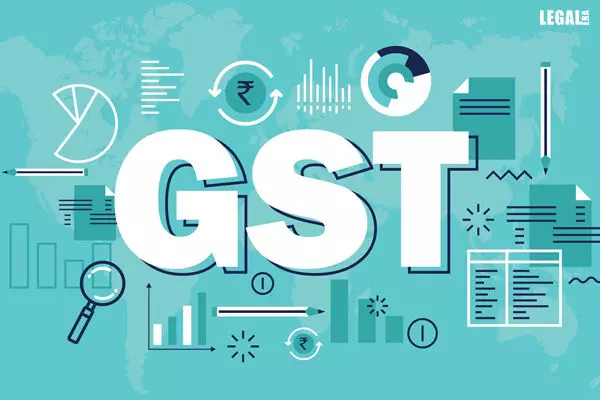- Home
- News
- Articles+
- Aerospace
- Artificial Intelligence
- Agriculture
- Alternate Dispute Resolution
- Arbitration & Mediation
- Banking and Finance
- Bankruptcy
- Book Review
- Bribery & Corruption
- Commercial Litigation
- Competition Law
- Conference Reports
- Consumer Products
- Contract
- Corporate Governance
- Corporate Law
- Covid-19
- Cryptocurrency
- Cybersecurity
- Data Protection
- Defence
- Digital Economy
- E-commerce
- Employment Law
- Energy and Natural Resources
- Entertainment and Sports Law
- Environmental Law
- Environmental, Social, and Governance
- Foreign Direct Investment
- Food and Beverage
- Gaming
- Health Care
- IBC Diaries
- In Focus
- Inclusion & Diversity
- Insurance Law
- Intellectual Property
- International Law
- IP & Tech Era
- Know the Law
- Labour Laws
- Law & Policy and Regulation
- Litigation
- Litigation Funding
- Manufacturing
- Mergers & Acquisitions
- NFTs
- Privacy
- Private Equity
- Project Finance
- Real Estate
- Risk and Compliance
- Student Corner
- Take On Board
- Tax
- Technology Media and Telecom
- Tributes
- Viewpoint
- Zoom In
- Law Firms
- In-House
- Rankings
- E-Magazine
- Legal Era TV
- Events
- Middle East
- Africa
- News
- Articles
- Aerospace
- Artificial Intelligence
- Agriculture
- Alternate Dispute Resolution
- Arbitration & Mediation
- Banking and Finance
- Bankruptcy
- Book Review
- Bribery & Corruption
- Commercial Litigation
- Competition Law
- Conference Reports
- Consumer Products
- Contract
- Corporate Governance
- Corporate Law
- Covid-19
- Cryptocurrency
- Cybersecurity
- Data Protection
- Defence
- Digital Economy
- E-commerce
- Employment Law
- Energy and Natural Resources
- Entertainment and Sports Law
- Environmental Law
- Environmental, Social, and Governance
- Foreign Direct Investment
- Food and Beverage
- Gaming
- Health Care
- IBC Diaries
- In Focus
- Inclusion & Diversity
- Insurance Law
- Intellectual Property
- International Law
- IP & Tech Era
- Know the Law
- Labour Laws
- Law & Policy and Regulation
- Litigation
- Litigation Funding
- Manufacturing
- Mergers & Acquisitions
- NFTs
- Privacy
- Private Equity
- Project Finance
- Real Estate
- Risk and Compliance
- Student Corner
- Take On Board
- Tax
- Technology Media and Telecom
- Tributes
- Viewpoint
- Zoom In
- Law Firms
- In-House
- Rankings
- E-Magazine
- Legal Era TV
- Events
- Middle East
- Africa
Allahabad High Court Rules Against Relegating Cases Of Undisputed Facts To Forum Of Alternate Remedy

Allahabad High Court Rules Against Relegating Cases Of Undisputed Facts To Forum Of Alternate Remedy
The petitioner was issued a show-cause notice for cancellation of the GST registration for wrongful availment of input tax credit
The Allahabad High Court has held that in tax cases if the facts are undisputed and have issues of jurisdiction and violation of principles of natural justice, those may not be relegated to the authorities. Such cases where minimum statutory compliances have been made are generally referred to the forum of alternate remedy.
The bench comprising Justice Saumitra Dayal Singh and Justice Shiv Shanker Prasad stated, “Relegating the petitioner to the forum of alternative remedy in the face of undisputed facts may be of no real use or purpose. The writ Court regularly relegates petitioners, specifically in tax matters, to the forum of the statutory remedy of appeal where minimum compliances of law have been made. However, on lack of jurisdiction or violation of the principle of natural justice, the writ Court is equally inclined to offer interference to ensure due adherence to the rule of law both by the assessee and the revenue authority.”
The petitioner was issued a show-cause notice for cancellation of the Goods and Services Tax (GST) registration on grounds of wrongful availment or utilization of input tax credit (ITC) or tax refund.
The petitioner submitted that a survey was conducted by the Directorate General of Goods and Services Tax Intelligence (DGGI), Delhi and the case was under investigation and not yet finalized. The petitioner added that a writ petition was filed before the High Court. Since the matter was sub-judice, the petitioner requested that the suspension be kept in abeyance.
However, the GST Authority cancelled the registration with retrospective effect from the date of the show-cause notice.
The Court observed that the cancellation of the GST registration order was wholly non-speaking, as no violation of statutory requirements was stated. The authority failed to mention the details of the tax invoices and the period for which the ITC was wrongly availed.
The bench held, “Unless the show-cause notice had made any fact allegation against the petitioner, the vagueness of the reply may remain inconsequential.”
The judges stated that cancellation of registration has a serious impact on a business entity. It has the effect of closure of the business, as no tax invoice may be issued, and no return may be filed easily.
Thus, while disposing of the writ petition, the bench directed the authorities that the suspension of registration of the petitioner may remain in force for one month during which the respondent authority may issue a fresh show-cause notice for registration cancellation.



